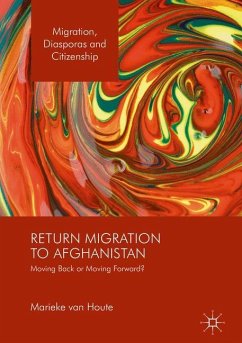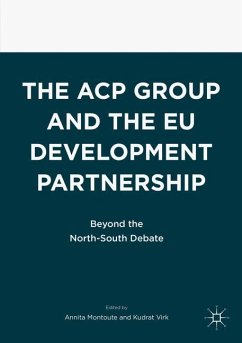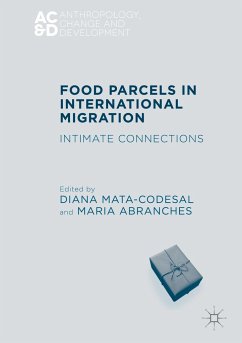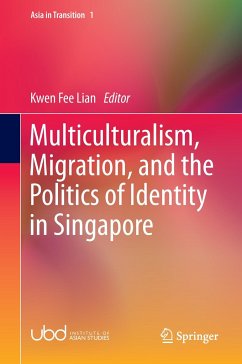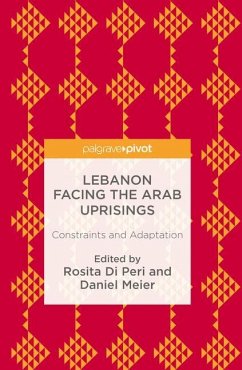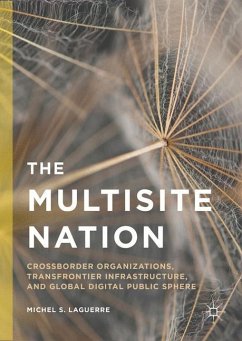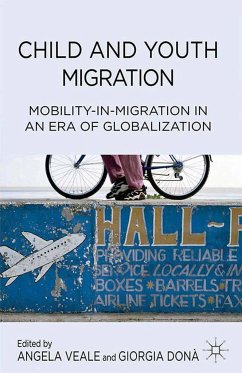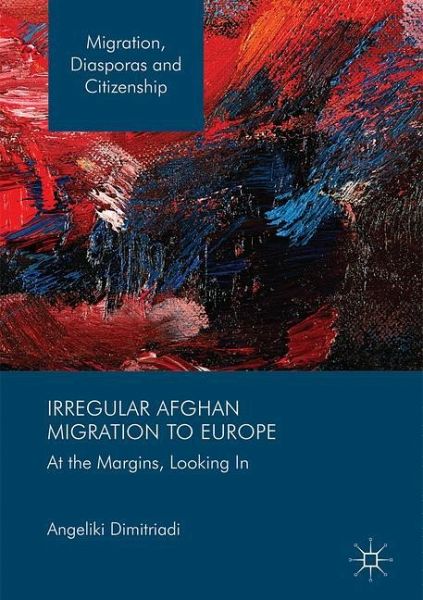
Irregular Afghan Migration to Europe
At the Margins, Looking In
Versandkostenfrei!
Versandfertig in 6-10 Tagen
68,99 €
inkl. MwSt.
Weitere Ausgaben:

PAYBACK Punkte
34 °P sammeln!
This book examines the issue of irregular transit migration to the EU by presenting the case of the Afghans. Focusing on the Afghans that arrive in and seek to move through Greece, it highlights the unique problems facing this distinctive migratory movement. Recognising that the migratory journey is a continuous interplay of policies and individuals, how each responds and adapts, the book itself moves between countries, policies, stories of migrants and the author's own experiences in the field. Drawing on extensive empirical research conducted in both Greece and Turkey, it explores why such t...
This book examines the issue of irregular transit migration to the EU by presenting the case of the Afghans. Focusing on the Afghans that arrive in and seek to move through Greece, it highlights the unique problems facing this distinctive migratory movement. Recognising that the migratory journey is a continuous interplay of policies and individuals, how each responds and adapts, the book itself moves between countries, policies, stories of migrants and the author's own experiences in the field. Drawing on extensive empirical research conducted in both Greece and Turkey, it explores why such transits occur and the decision-making process of the migrants in transit. Through the example of Afghan migration this book contributes to broader debates concerning transit migration, hospitality and asylum (how it is perceived, access to it). This book presents a timely study of the rise of 'fortress Europe' and the current discourse around refugees and migrants, amidst the largest refugeeflowsince WWII in Europe. This book's interdisciplinary approach will make it a valuable resource for policy makers as well as Sociology and Politics scholars.



